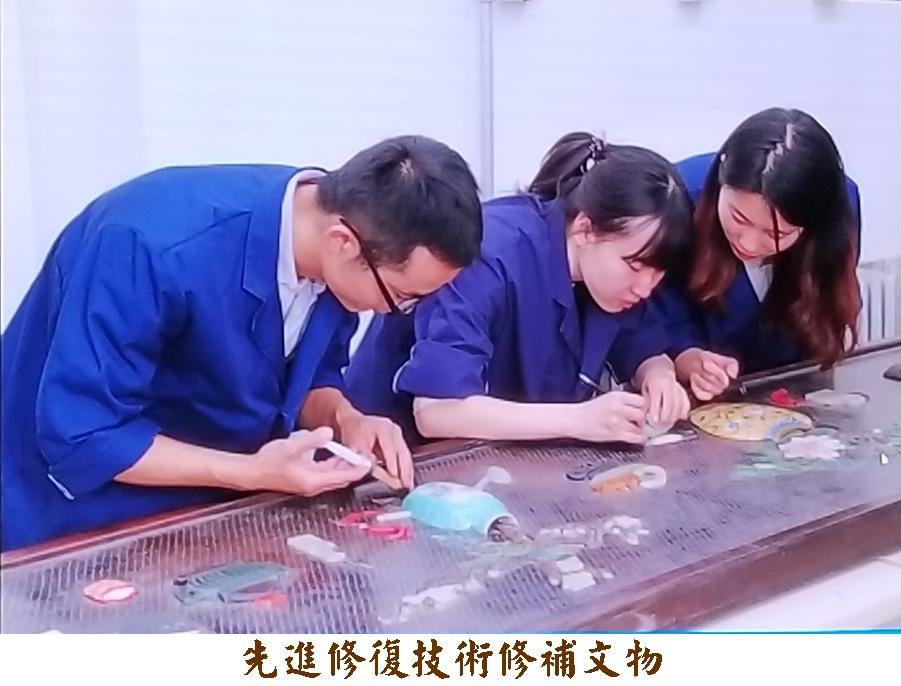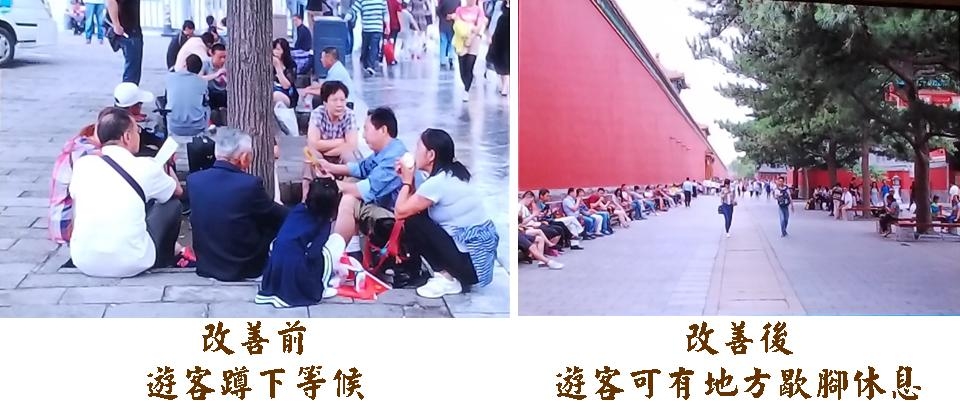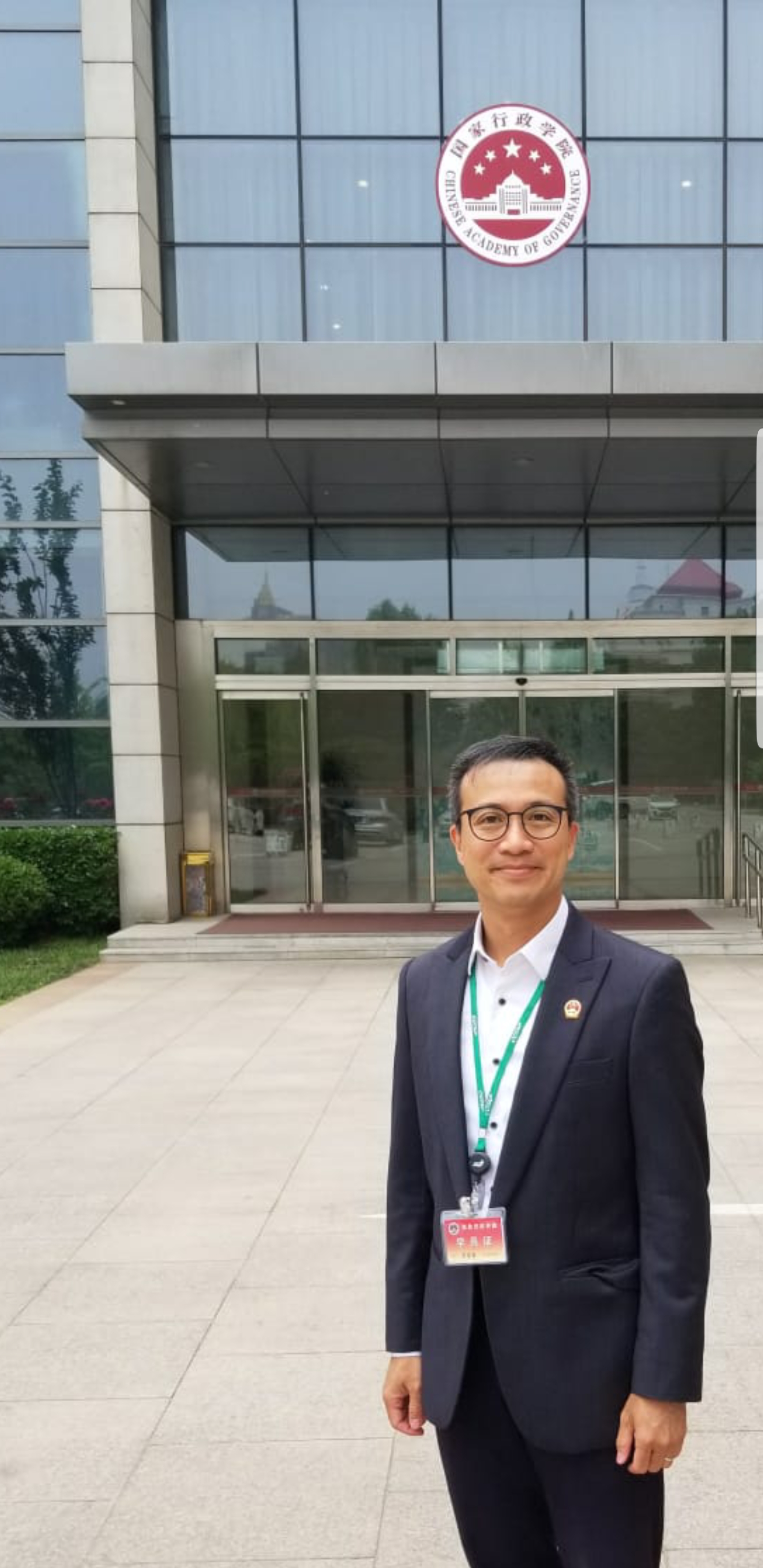|
30 May 2018
Time flies, and I have been serving as the post of Principal at YKN for about the whole year, handling tonnes of paperwork, interviewing with different stakeholders, taking charge of various types of meetings, and making decisions for school strategies every day. As a matter of fact, it was never an easy task to squeeze some time to take a break, not to mention a one-day business trip. However, it was a must for any new principals to attend a training course at Beijing within three years, and I was quite reluctant initially, but I eventually made up my mind to fulfil the entry requirement as requested by EDB and joined the 6-day training course for principals organized by the Chinese Academy of Governance in the mid of May. Out of my expectation, I found that it was so fruitful that it was beyond depiction.
With regards to the whole course, the most unexpected was the visit to the Forbidden City, in which Dr. Shan Jixiang, curator of the Palace Museum, introduced and explained its management and environmental protection mindset. This was eye-opening and fruitful. To be honest, the impression of the previous visits to the Forbidden City was not good. For example, prior to entering, it took much time queuing, buying tickets and suffering from high temperature without any places for rest. Worse still, there had been many temporary buildings not in harmony with others, and most parts inside were black in colour. Thus, before his seminar, I was hesitant and misunderstood such visit would even put me off!
A new perspective
 No sooner had I paid a visit and listened to his explanations than I had a deeper understanding and completely got rid of the past negative impression. In recent years, a brand-new perspective had been unveiled. Under Dr. Shan’s leadership, not only could the Chinese historic relics be preserved but the latest creativity and technology could also be utilized to display in front of the public vividly. For example, the most advanced technologies had been adopted to repair the damaged relics in the Forbidden City. There were also a number of innovative measures for improving environment implemented to improve every place and assure the best condition shown before the visitors. No sooner had I paid a visit and listened to his explanations than I had a deeper understanding and completely got rid of the past negative impression. In recent years, a brand-new perspective had been unveiled. Under Dr. Shan’s leadership, not only could the Chinese historic relics be preserved but the latest creativity and technology could also be utilized to display in front of the public vividly. For example, the most advanced technologies had been adopted to repair the damaged relics in the Forbidden City. There were also a number of innovative measures for improving environment implemented to improve every place and assure the best condition shown before the visitors.
The most impressing image was the human-oriented and management principle of Dr. Shan to show respect to every item. The curator took into consideration the visitors, staff and relics while improving the Forbidden City. Besides recognizing every item and detail thoroughly, he respected his staff, visitors and relics. Adopting the human-oriented principle, he tried his best to do everything. I was deeply impressed with his seriousness and working attitude. He explained how to improve the problems caused by long queues for buying tickets at the entrance through construction works systematically and how to provide them with adequate seats for waiting. Further, he made use of modern information technology showing the exhibits that had long been preserved in the store before. He changed the dark environment in the Exhibition  Museum with better lighting without damaging any relics so as to let visitors appreciate the carvings. Young people were also invited to participate in the cultural research and restoration work, which respect and cater every visitor and relic. As a whole, people were propelled to appreciate the Forbidden City. Museum with better lighting without damaging any relics so as to let visitors appreciate the carvings. Young people were also invited to participate in the cultural research and restoration work, which respect and cater every visitor and relic. As a whole, people were propelled to appreciate the Forbidden City.
A new gain
Short as Dr. Shan’s explanations were in his speech, I felt impressed by his charisma and leadership. He showed his passion, confidence and determination in understanding its strengths and weaknesses. Dr. Shan tried his best to pinpoint the problems and adopted a series of new measures for improvement against all odds. That is why the Forbidden City has become one of the most well-established museums in the world that we all feel much appreciated. Through this visit, I really realize his mission and vision. This is worth learning from him. As a school member, no matter management, teachers and students, we should embrace self-improvement and seek the ways to make ourselves better. Facing any difficulties, we should uphold the ‘human-oriented’ principle and respect every stakeholder at school because unity is strength. Only by continuous improvement in strategies and methods can we achieve success in fostering stable and sustainable development.

Mr. So Ka Leung
Principal
|